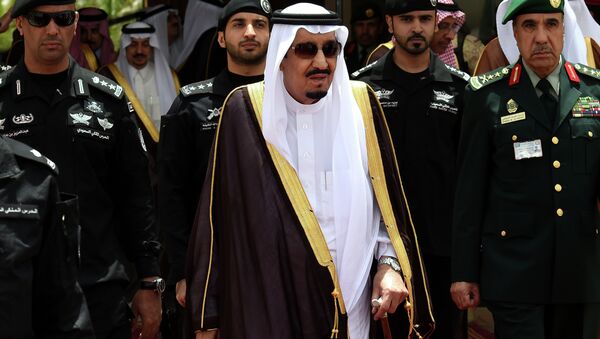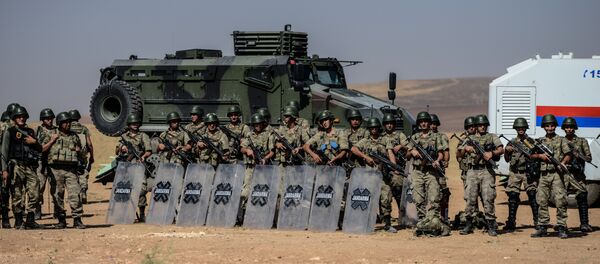Citing Germany BND intelligence sources, American-German researcher, historian and strategic risk consultant F. William Engdahl notes that Saudi Arabia is about to become a serious destabilizing force in the Middle East, adding that it is likely that Riyadh's current cautious foreign policy could soon be replaced by an interventionist approach.
The researcher underscores that he has to reconsider his previous stance regarding the possible Russo-Saudi alliance: Russia's involvement in Syria is now viewed as a serious obstacle to the Saudi royal family's plans.
"Prince Salman is Defense Minister and led the Kingdom, beginning last March, into a mad war, code-named by Salman as 'Operation Decisive Storm,' in neighboring Yemen. Saudis headed a coalition of Arab states that includes Egypt, Morocco, Jordan, Sudan, the United Arab Emirates, Kuwait, Qatar and Bahrain. The Prince is also head of the Saudi Economic Council which he created. The new King, Salman, is not the benign sweet guy his PR staff try to paint him," Engdahl notes in his recent piece for New Eastern Outlook.
"The CIA planned to use the Saudi Muslim Brothers to wield a weapon across the entire Muslim world against feared Soviet incursions. A fanatical young terrorist named Osama Bin Laden was later to arise out of this marriage in Hell between the Brotherhood and Wahhabi Saudi Islam," Engdahl emphasizes.
According to the researcher, King Salman had certain ties with al-Qaeda. His involvement originates from the late 1970s when he was a Governor of Riyadh. It was he who headed major Saudi charities which were later discovered financing al-Qaeda in Afghanistan and Bosnia.
"Salman worked intimately as the financial funding conduit for what became al-Qaeda together with Bin Laden's Saudi intelligence 'handler,' then-head of Saudi Intelligence, Prince Turki Al-Faisal and the Saudi-financed Muslim World League," Engdahl continues.
Engdahl stresses that a declassified US Defense Intelligence Agency's (DIA) document indicated in 2012 that since the very beginning the major driving forces of US-backed Syrian insurgency were the Salafists, the Muslim Brotherhood and AQI.
"If we look at the emergence of al-Qaeda in Iraq and its transformation into the Islamic State in Iraq and Syria/ISIS [Daesh], it all traces back to the Saudi operations going back to the late 1970's involving now-King Salman, Saudi Osama bin Laden, together with Saudi intelligence head, Prince Turki Al-Faisal," Engdahl points out.
"What we have, then, is not an isolated Russian war against ISIS [Daesh] in Syria. What lies behind ISIS is not just Erdogan's criminal regime, but far more significant, the Kingdom of Saudi Arabia and her Wahhabi allies Kuwait, UAE, Qatar," Engdahl suggests.
Interestingly enough, independent researcher and writer Timothy Alexander Guzman noted in his November article that there is an influential "triangle" of Turkey, Saudi Arabia and Qatar in the Middle East. Guzman insisted that Turkey is the main coordinator of this clandestine alliance.
Remarkably, while the Turkish Armed Forces (TSK) comprises about 640,000 military, civilian and paramilitary personnel, Saudi Arabia boasts just a 175,000-strong army, and Qatar has a very modest military force of around 11,800 servicemen. Furthermore, the TSK is the second largest standing military force in NATO.
Whoever the "mastermind" of the Turkish-Saudi-Qatari alliance is, it would have been unable to conduct its covert activity in the Middle East, including funding of terrorists or oil smuggling from Syria and Iraq without some tacit agreement with major Western powers. Remarkably, Washington and its European NATO allies are still turning a blind eye to illicit activities of their partners and allies in the Middle East.




